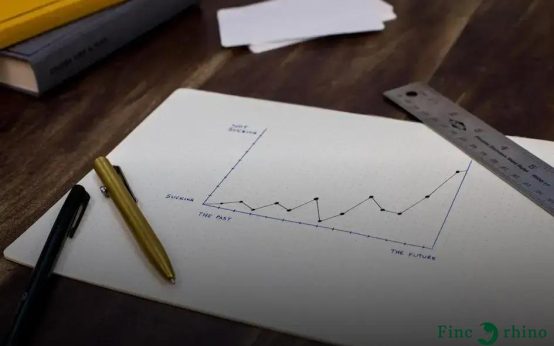Discovering how to wholesale real estate with no money down can be a game-changer for aspiring investors. This strategy allows you to earn profits by flipping properties without substantial upfront costs. In this guide, we’ll explore the essential steps, from understanding wholesaling basics to building a network of buyers. Master these skills to succeed in the competitive real estate market without needing deep pockets.
Understanding Wholesaling Basics
Wholesaling in real estate involves finding a property that is available for sale at a price that is below its market value. The key skill in wholesaling is identifying these properties and securing them under contract. This allows the wholesaler to sell or assign the contract to another buyer, typically a real estate investor, at a higher price.
An essential aspect of understanding wholesaling is knowing that you don’t need to own the property to make a profit. Instead, you are selling your rights under a purchase contract. This approach is crucial because it allows individuals to operate in real estate without significant capital or the need to secure a mortgage.
Wholesaling often starts with comprehensive research to find opportunities. Property owners facing foreclosure, properties in disrepair, or homeowners looking for a quick sale are potential sources of deals. Successfully locating these deals requires expertise in evaluating the property’s worth and estimating potential repair costs.
Once a property is identified, the next step involves negotiating a deal that is beneficial for all parties involved. This means ensuring the original property owner agrees to a contract price that leaves room for a profit when the contract is assigned to an investor.
Effective negotiation skills
are crucial here, as well as understanding how to structure deals that attract buyers.
Understanding the basic principles of wholesaling provides a foundation for building a real estate business that can expand over time. Mastering these basics can lead to lucrative opportunities without traditional financial constraints.
Finding Profitable Deals
When it comes to Finding Profitable Deals in the competitive world of real estate wholesaling, a strategic approach is essential. To unearth properties that promise great returns, consider exploring various channels such as online real estate platforms, local auctions, and networking events within the industry.
Aligning yourself with other real estate professionals can be hugely beneficial. This includes attending meetups or joining online forums where you can exchange insights and learn about available properties. Keep an eye on listings in neighborhood groups and classified ads, as some of the best deals might not be immediately visible on mainstream platforms.
Diversifying your search strategy is key. Look into pre-foreclosures, estate sales, or properties that have been on the market for an extended period. These often present opportunities for lower-cost procurement due to circumstances like motivated sellers or the need for quick sales.
Utilize data-driven tools and analytics to assess market trends and property values. Leveraging these tools helps in determining which neighborhoods are on the rise and where undervalued properties exist. Always perform thorough due diligence to ensure that the deals you find align with your investment strategy and budget constraints.
Finally, remember to build a relationship with local real estate agents and investors. They can often tip you off to properties that match your criteria before they are widely marketed.
Negotiating Contracts Effectively
Mastering the art of negotiating contracts is crucial in wholesale real estate, especially when you’re aiming to start with no money down. The key is to create a win-win scenario for both the buyer and the seller, ensuring that each party sees the benefits of the deal.
Firstly, it’s essential to prepare thoroughly before entering any negotiation. This means knowing the market value of the properties you’re dealing with and understanding the needs and motivations of the seller. A well-informed negotiator is always more convincing.
Utilize effective communication skills. Active listening plays a vital role in understanding what the other party truly desires. This allows you to tailor your propositions to address their specific needs, making them more likely to agree to your terms.
Negotiating is not just about pushing for what you want. It’s also about being flexible and willing to make concessions. Identify areas where you can give without affecting the overall value of the deal. This approach builds trust and makes the negotiation smoother.
Incorporate terms that allow for creative financing. This includes options like delayed payments or setting up seller financing, which can make the offer more attractive without requiring upfront capital from you.
Finally, don’t underestimate the power of a clear and concise contract. A well-drafted agreement can prevent misunderstandings and ensure you’re protected legally. Seek professional legal advice to draft or review contracts as necessary.
Building a Network of Buyers
In the realm of real estate wholesaling, creating and nurturing a network of buyers is pivotal. A robust buyer network not only quickens sales but also enhances profits. When starting without capital, this network can be your most valuable asset. Let’s explore strategies to strengthen this crucial component of your wholesaling journey.
Join Online Real Estate Forums: Participation in online communities like BiggerPockets or local real estate Facebook groups can provide access to potential buyers. Engage actively by sharing insights and seeking advice; this builds credibility and can lead to fruitful connections.
Attend Local Real Estate Meetups
Meeting local real estate investors and professionals at meetups can help in forming a personal connection. Many of these investors could become your future buyers. Don’t hesitate to introduce yourself, exchange contact details, and follow up with people you meet.
Build a Scalable Email List: As you connect with potential buyers, compile their information into an organized email list. This becomes a direct line for offering deals as they arise. Consider using email marketing tools to manage communication efficiently.
Leverage Social Media
Use platforms like LinkedIn and Instagram to highlight your involvement in real estate. Sharing past deals, insightful content, or market analyses builds your authority and invites interest from potential buyers.
Collaborate with Real Estate Agents: Real estate agents often have buyers looking for specific properties. Partnering with agents can widen your reach, giving you access to a pool of buyers who trust the agents’ recommendations.
Refining these tactics over time can expand your network and facilitate successful deals. By continually seeking to add value to your connections, your network becomes a vital component of wholesaling success.
Closing the Deal Successfully
When you approach the stage of closing the deal in a real estate wholesale transaction, there are several key factors to ensure a smooth process. Initially, verify all details and documents related to the property are accurate and up-to-date. This includes the title, any existing liens, and inspection results, if applicable.
Communicate effectively with both the seller and the buyer. Keep them informed about the timeline and any requirements they need to fulfill before the closing date. Transparency builds trust and helps avoid last-minute surprises.
Next, work closely with a reliable title company or a real estate attorney. Their expertise helps navigate the legal intricacies and ensures the contract adheres to local real estate laws. This step is crucial to protecting your interests and those of your partners.
Prepare all necessary paperwork meticulously. Double-check signatures, ensure that everything aligns with the agreed terms, and address any discrepancies promptly. A mistake here could delay or derail the closing process.
Establish a backup plan in case the primary buyer backs out. Having a list of potential backup buyers helps maintain momentum in selling the property without losing time.
Lastly, focus on relationship-building. Handling the end of the deal with professionalism and gratitude can lead to repeat business and referrals, which are invaluable in real estate wholesaling.





